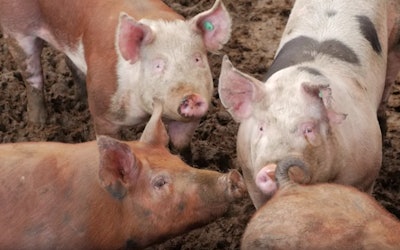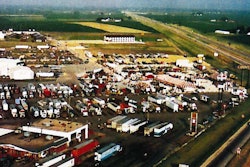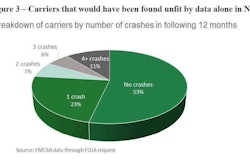Those of you who’ve experienced rides comparable to hours on a mechanical bull might have used, on rare occasions, scatological terms to refer to certain highways. It turns out such descriptions could have a prophetic element.
 Iowa, North Carolina and Minnesota account for more than half of the nation’s hog and pig sales.
Iowa, North Carolina and Minnesota account for more than half of the nation’s hog and pig sales.There’s a lot of money to be saved if roads were paved with asphalt using processed pig manure, according to the research of civil engineer Ellie Fini and a team at North Carolina A&T State University. A newly posted video from the National Science Foundation provides a good update since Overdrive’s Todd Dills wrote about the subject in 2013.
In the video, Fini says the manure is rich in oils, like petroleum, but is not suitable for fuel. Processing it for binding small rocks together in asphalt costs only 56 cents per gallon, compared to about $2 per gallon for petroleum-based binders.
Worried that highways of the future will smell like pig farms? You can breathe easy on that one. “The smelly stuff is filtered out during the process,” the video says.









